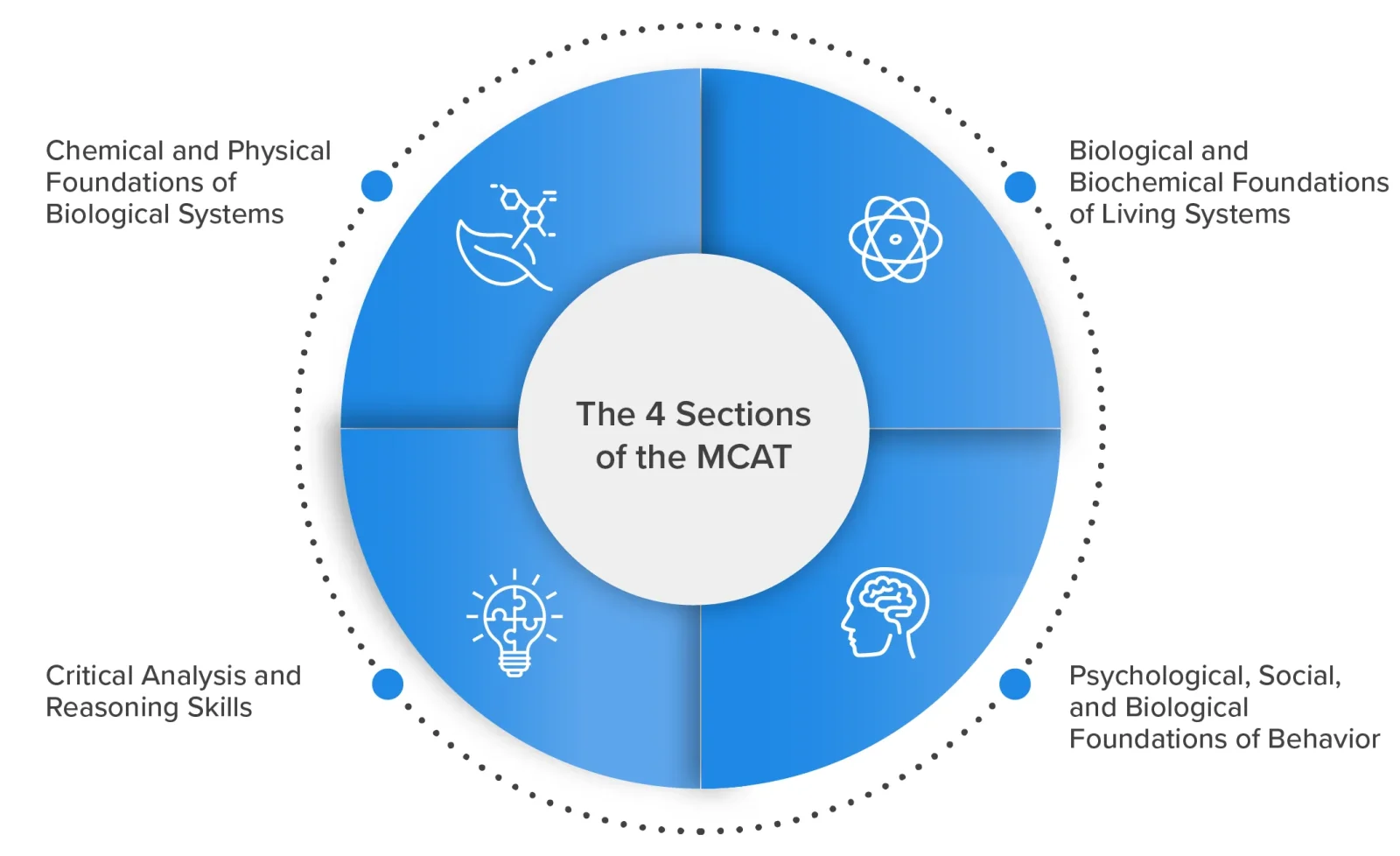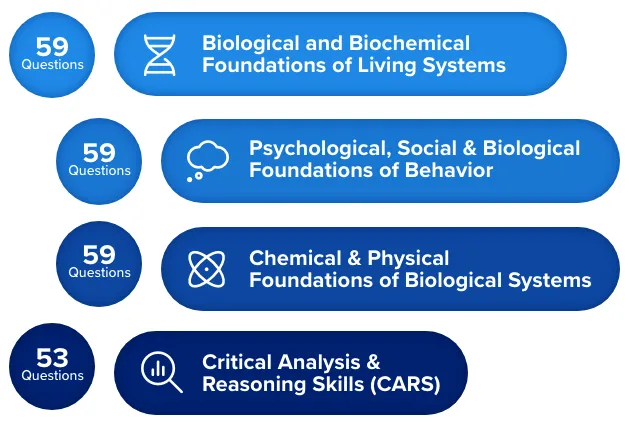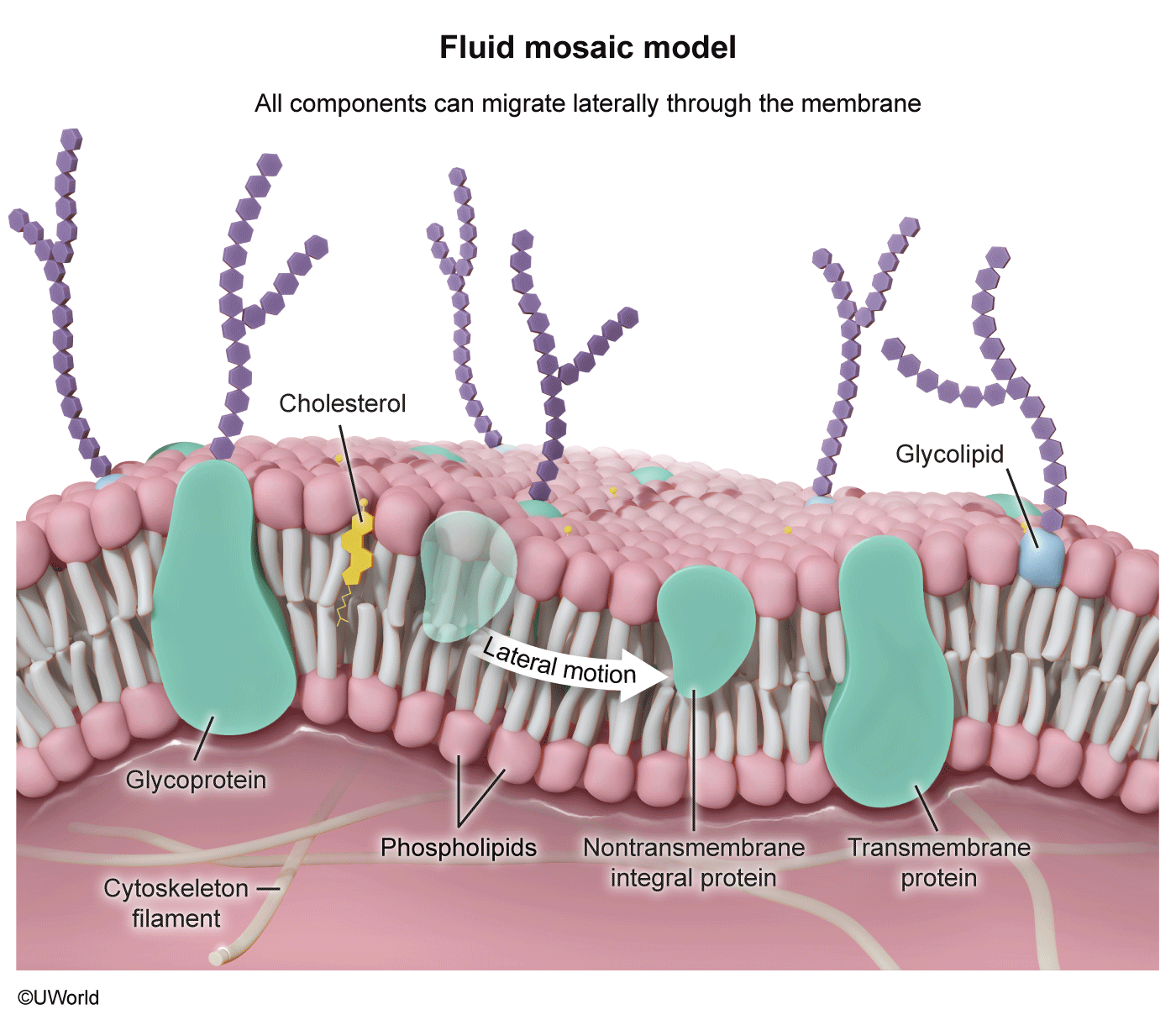The MCAT (Medical College Admission Test®) is a multiple-choice, standardized exam used by medical schools, health profession schools, and graduate programs to determine applicants’ skills and knowledge in topics correlated with success in medicine. The exam is administered by the AAMC® (Association of American Medical Colleges®) to more than 85,000 students annually. The MCAT exam evaluates your knowledge in the sciences and your ability to apply critical thinking, reasoning, and problem-solving skills essential for success in medical school.
What Is on the MCAT?
The MCAT exam is divided into four MCAT sections that medical educators, physicians, residents, and medical students have identified as being crucial to success in medical school and practicing medicine. They are:
- Biological and Biochemical Foundations of Living Systems
- Chemical and Physical Foundations of Biological Systems
- Psychological, Social, and Biological Foundations of Behavior
- Critical Analysis and Reasoning Skills (CARS)

How Long Is the MCAT?
The MCAT is a marathon compared to most standardized exams, lasting just over 7.5 hours. Each of the four exam sections is tested for 90 to 95 minutes, making the total testing time about 375 minutes (6.25 hours).
How Many Questions Are on the MCAT?
There are 53 to 59 questions per MCAT section, coming in the form of passage-based and discrete (standalone) questions. Altogether, there are 230 questions on the MCAT. This makes building your test-taking endurance a vital piece of your exam preparation.

Why the MCAT Matters
A strong MCAT score is one of the most important components of a competitive medical school application. Nearly all U.S. medical schools and many Canadian programs use your MCAT test results to assess your readiness for the rigors of medical education. Medical schools consider the MCAT alongside your GPA, extracurriculars, personal statement, and interviews when making admissions decisions.
How Important Is Your MCAT Score?
Medical school is very competitive, making your MCAT score a vital piece of information for admissions departments. They will weigh your score along with your academic performance, exposure to healthcare and medical research environments, personal statement, and letters of recommendation to determine whether to accept you. MCAT scores range from 472 to 528, with 510 or higher being considered a “good” score. This total score is determined by adding your individual score from each section, ranging from 118 to 132.

MCAT Registration and Test Dates
You can register for the MCAT test through the official AAMC website. The MCAT is administered between January and September at certified testing centers. Early registration is recommended to secure your preferred date and location.
When Do You Take the MCAT?
MCAT test dates are updated each year, and you should register for the MCAT as soon as you know your preferred testing date. Most students take the MCAT in their junior or senior year of college after having completed introductory science, psychology, and sociology courses. Most students take the exam in the spring or summer one year before applying to medical school.
Give yourself 3–6 months to prepare. Most students score their best after 300+ hours of MCAT test prep.
How to Prepare for the MCAT
The most effective way to prepare for the MCAT is to follow a structured study plan over the course of 3 to 6 months. UWorld’s Comprehensive MCAT prep course is designed to be your all-in-one solution, featuring the full AAMC Prep Hub alongside thousands of MCAT-style questions, print and digital books, videos, flashcards, and smart performance tracking tools. Our course supports mastery of every topic recommended by the AAMC so you can feel fully prepared for every section of the MCAT exam.
Summary: Key MCAT Facts
| Feature | Details |
|---|---|
| Exam Name | Medical College Admission Test (MCAT) |
| Administered By | Association of American Medical Colleges (AAMC) |
| Sections | 4 (BBLS, CPBS, PSBB, CARS) |
| Score Range | 472–528 |
| Test Duration | 7.5 hours |
| Test Centers | Administered at official AAMC testing locations |
| Registration | On AAMC website |
| MCAT Prep Resources | UWorld Comprehensive Prep Course (UWorld + AAMC Prep Hub) |
Frequently Asked Questions
Can international students take the MCAT?
Yes, international students can take the MCAT; however, testing dates and locations are limited. Read more about the MCAT for international students.
How hard is the MCAT?
The MCAT is one of the most difficult U.S. graduate school entrance exams. However, achieving a high score is manageable with advanced preparation and an effective study plan. Performing well on the MCAT shows medical schools that you have a good foundation and are more likely to succeed in medical school.
How long should you study for the MCAT?
Top MCAT scorers begin their preparation early, usually 3 to 6 months or more before their exam, and typically allocate around 300 hours or more of dedicated study time.
How many times can you take the MCAT?
Students can take the MCAT 3 times in a calendar year, and 4 times within two calendar years. There is a lifetime limit of 7 attempts per person.
Should I retake the MCAT?
If your first MCAT score is low compared to the averages of the students accepted to your preferred medical schools, you should consider retaking the MCAT. AAMC data shows that most students obtain a higher score on their second attempt, especially if their first score was 517 or lower.
Read More About the MCAT
Learn about the MCAT registration and scheduling process, including suggested prerequisites, rescheduling information, and various costs and fees.
MCAT Test Dates & Score Release Dates
View the latest MCAT testing calendar for your country, including registration deadlines and score release dates based on when you take the exam.
MCAT Scores, Percentiles, and Pass Rates
Take a deep dive into MCAT scoring to discover what you need to achieve your goals. We cover average scores, breakdowns by section, acceptance rates by score, and more.
Explore the MCAT’s four key sections, understand the exam breakdown and format, and get the guidance you need to strategically plan your prep.








